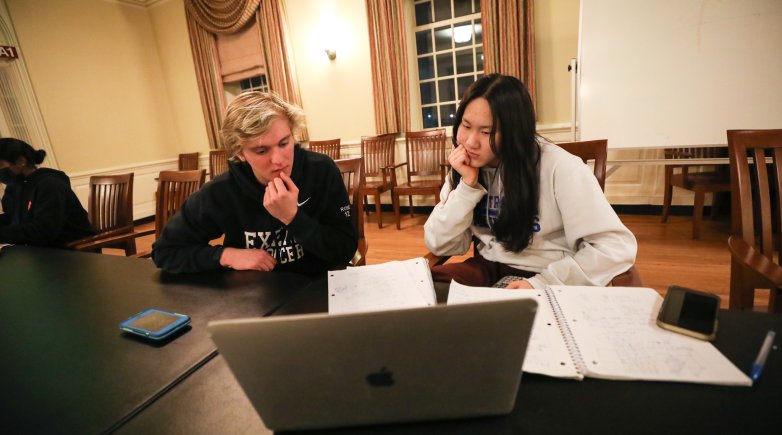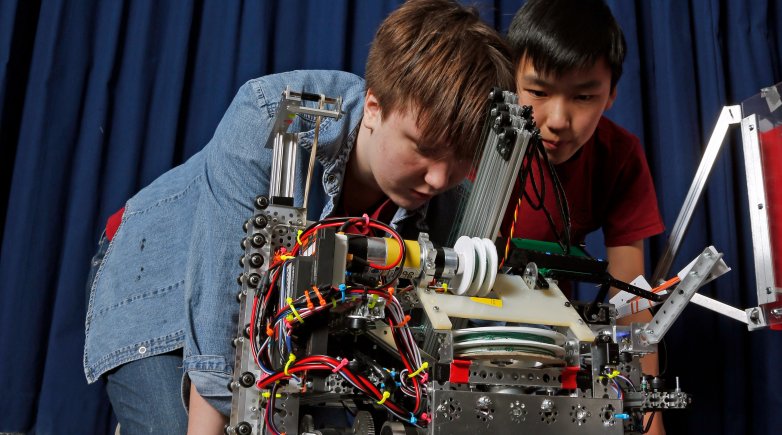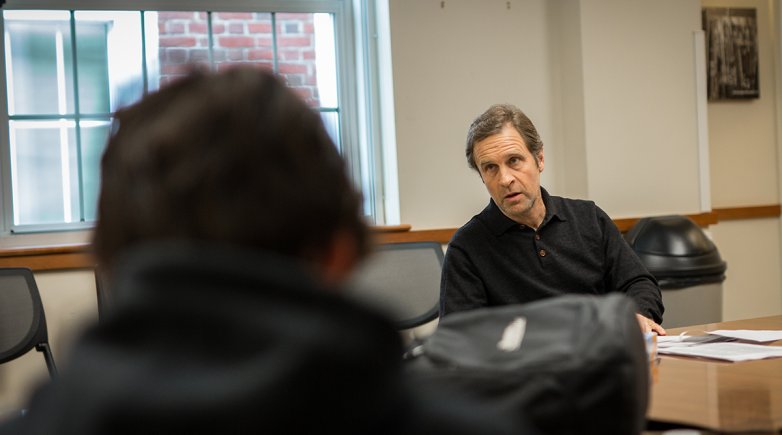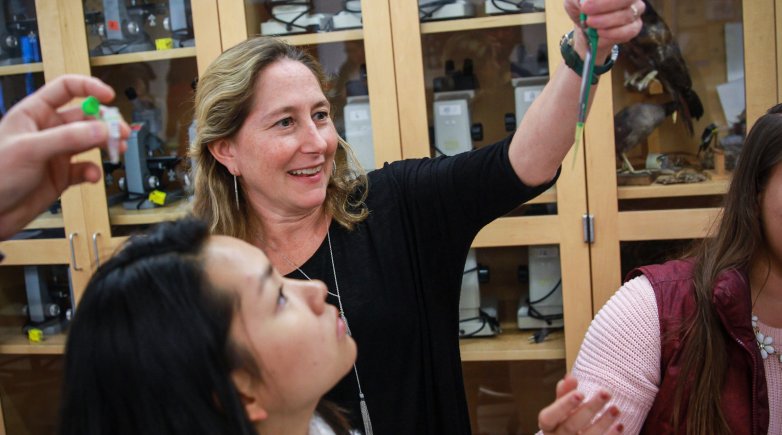“Our goal has always been to have the CTL’s student support to be for every student. It’s not intended to be only for times when a student is struggling,” says Meg Foley, the Michael Ridder ’58 Distinguished Professor in History who has spearheaded the center’s development. “We want to build on our existing culture that asking for help is just a regular part of a good education.”
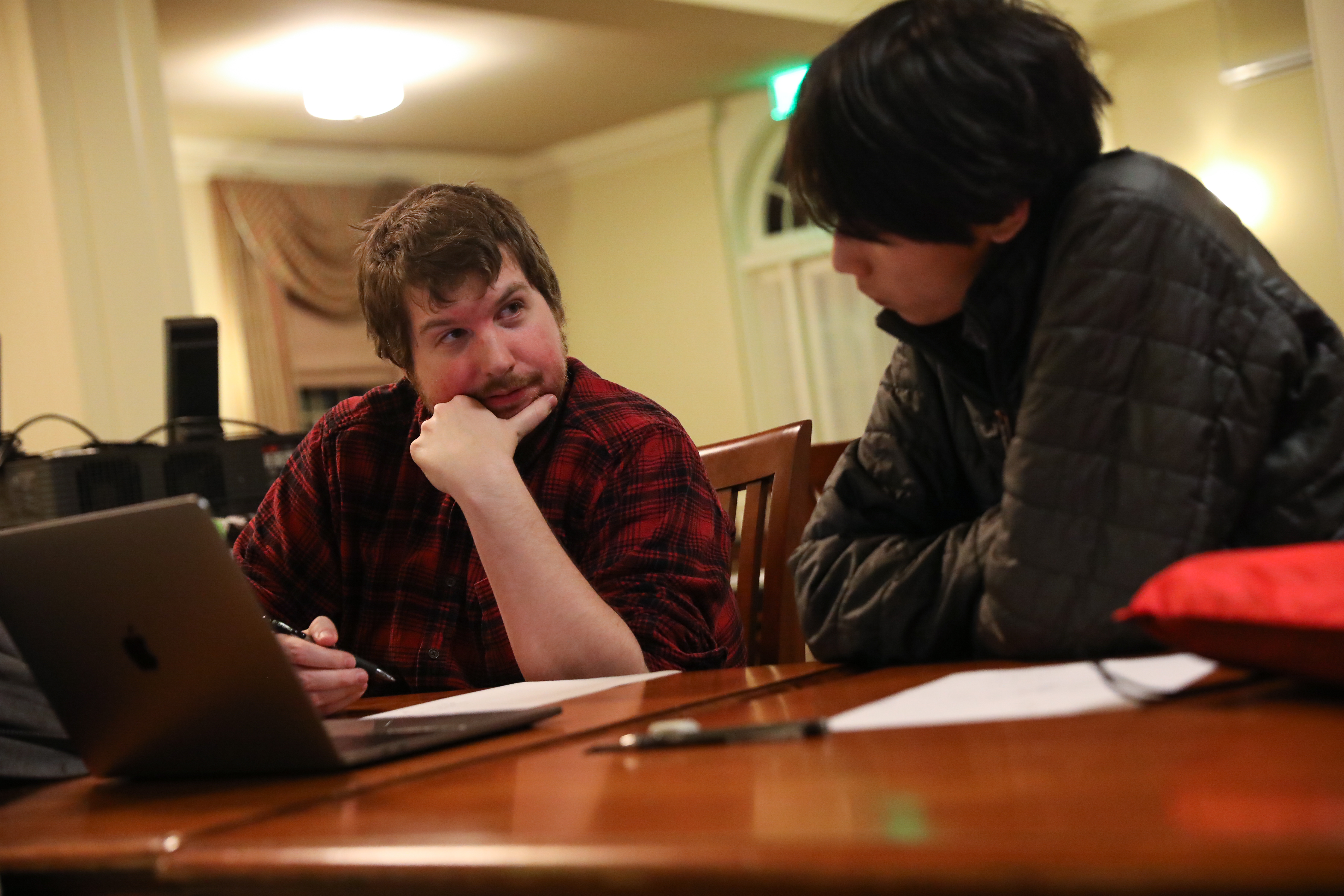
That can be a big adjustment for students arriving at Exeter who are accustomed to excelling. “They know they are here to stretch themselves, but when the stretching is happening, sometimes they doubt themselves, and we want to help them with that adjustment,” Foley says. “Part of that adjustment is asking for help, not just worrying or struggling alone.”
Laura Marshall, a math instructor and the dean of academic affairs, says the situation can be challenging for a student who suddenly needs to work to earn the grades that once came easily. “On top of that, they look around at their friends who seem to be doing just fine and they are not going to the Learning Centers. So, they then develop more doubt and it begins to feel as though the centers are only for those who are really struggling and they do not want to identify as that student and are convinced that they can turn things around on their own. It becomes this cycle.”
The inclusion of peer tutors has helped. Ferdyn, a two-year senior day student from Exeter, was identified as a top student in Spanish and invited to join the center as a peer tutor. She says some students feel more comfortable revealing their struggles to schoolmates.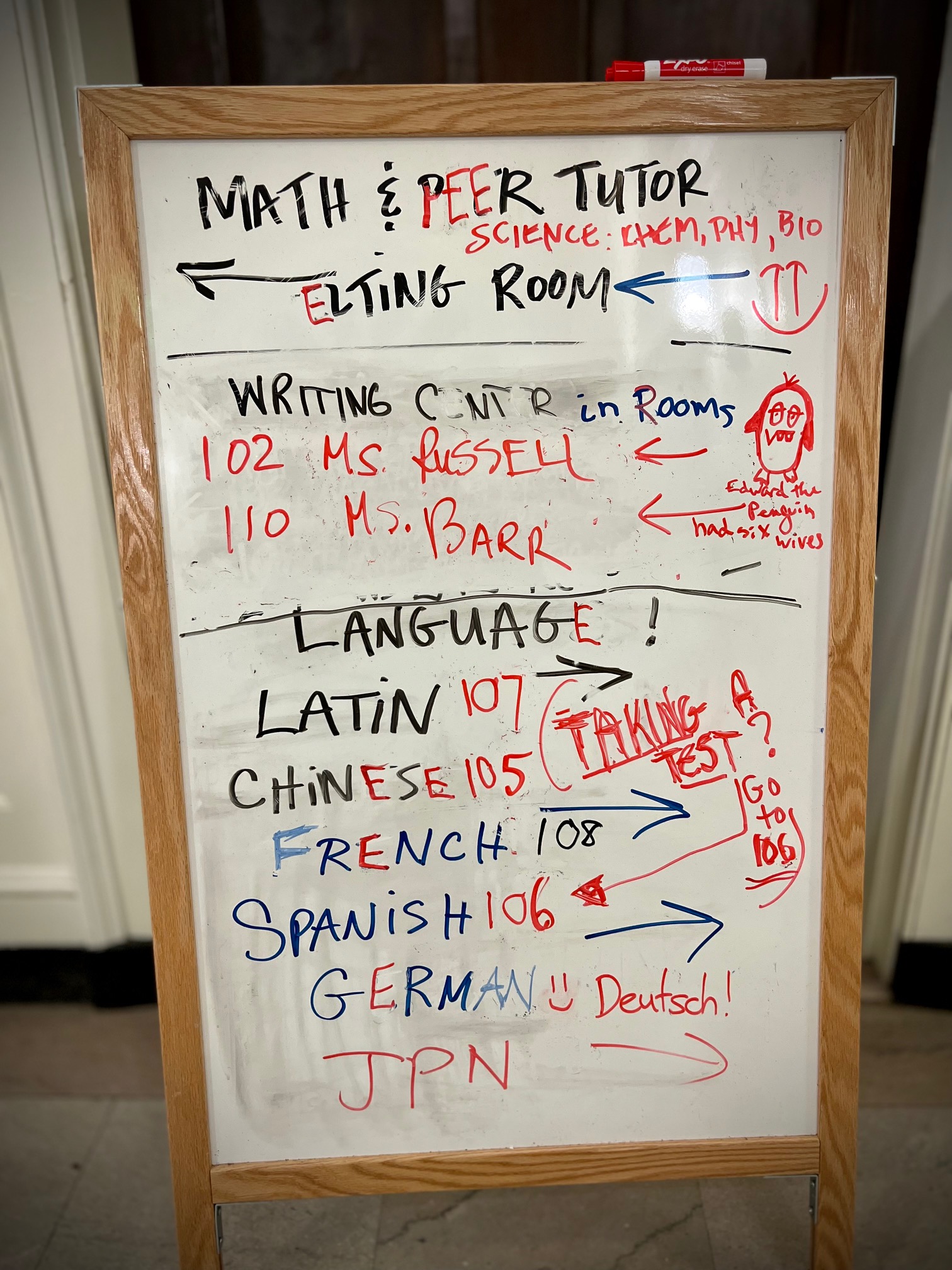
“I think often, when meeting with teachers, there can be pressure to seem fully prepared, and to understand what's going on right away,” she says, “but with peers, you can be a little bit more candid. I think this helps people actually get the help they need, and potentially connect with someone new along the way.”
The peer tutoring aspect of the center is a formalized extension of what has been happening organically in dorm common rooms for decades. Many dorms keep lists of which students are strong in specific subjects and can assist with a homework assignment or problem. Those impromptu tutorials provide the faculty with a blueprint.
“There’s a healthy culture of getting help from peers in the dorms, at least there is in Webster, where I’m dorm head, so one of the inspirations for my work is talking to the students about the kind of help they ask for from their peers,” says Alex Myers ‘96, an English instructor who is working with Foley and Marshall to develop the center. “What I’ve observed is that students like to start the work on their own, work until they get stuck, and then ask someone for a little nudge. So, in thinking of the Learning Centers, we wanted to have a space where students could sit and work and just easily lean over and ask for help — it didn’t have to be a big deal.”
English Instructor Genny Moriarty helped to introduce a series of seminars for writers to entice students to visit the center. Featured topics have included journalistic writing; digital literacy and information fluency; proper citing of sources; and submitting work for writing contests. “Genny really envisions building the writing center into a ‘place for writers,’ which includes but is not limited to a place to get help on an assignment,” Foley says. “Some of the sessions are working in that direction and we hope to do more of that.”
Exeter's academic support resources extend beyond The Learning Center, of course. Academic advisers are constant advocates in students' lives, and Learning Specialist Jonathan Nydick is dedicated full-time to work with students in select content areas and in study skills development, including memory, note taking, test taking, reading and time management.
All of these efforts show progress, even on a relatively quiet Thursday evening mid-term. A half-dozen students are spread around the Elting Room working alone or in pairs while Science Instructor Shimaa Ghazal helps a student. Next door, History Instructor Kirsten Russell meets with a student working on a paper. The Learning Center is gaining traction.
